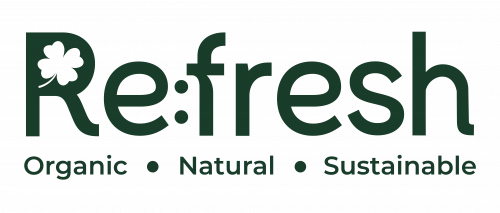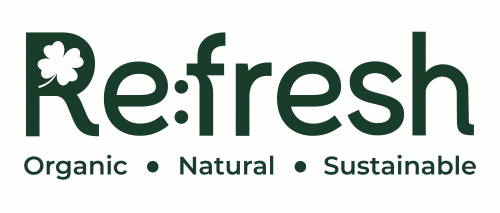'Ghee' is sometimes misunderstood for being 'unhealthy'. Its use finds its way throughout Indian, Middle Eastern, and Southeastern communities, where it is a crucial ingredient in their cuisines. Cow ghee has found a mention in the sacred Ramayana and Mahabharata, where it is considered sacred due to its medicinal properties.
No wonder cow ghee is recommended extensively by Ayurvedic experts to moisturize the skin, heal wounds, prevent the onset of premature aging, and heal a host of other ailments. Many people believe in the myth of ghee being fattening. The fact is, if taken in the right amounts, it can actually help you lose weight and keep you healthy. More on this later. First, let us see the nutritional benefits of Cow Ghee.
Nutritional Benefits of Cow Ghee
- Ghee is calorie-dense, with a lot of fat molecules. Research has shown that about 100ml of ghee provides us with about 880 calories of energy.
- Though ghee does not contain sugar, protein, carbohydrates, or fiber, it is mostly essential saturated fat.
- It does have a small amount of 'good' cholesterol. This aids in the production of hormones besides helping the organs work well.
- Desi cow ghee, from grass-fed cows, is rich in vitamin K, E, and A besides Butyric Acid.
Buy Pure Desi Organic Ghee of Top Brands from Refresh:
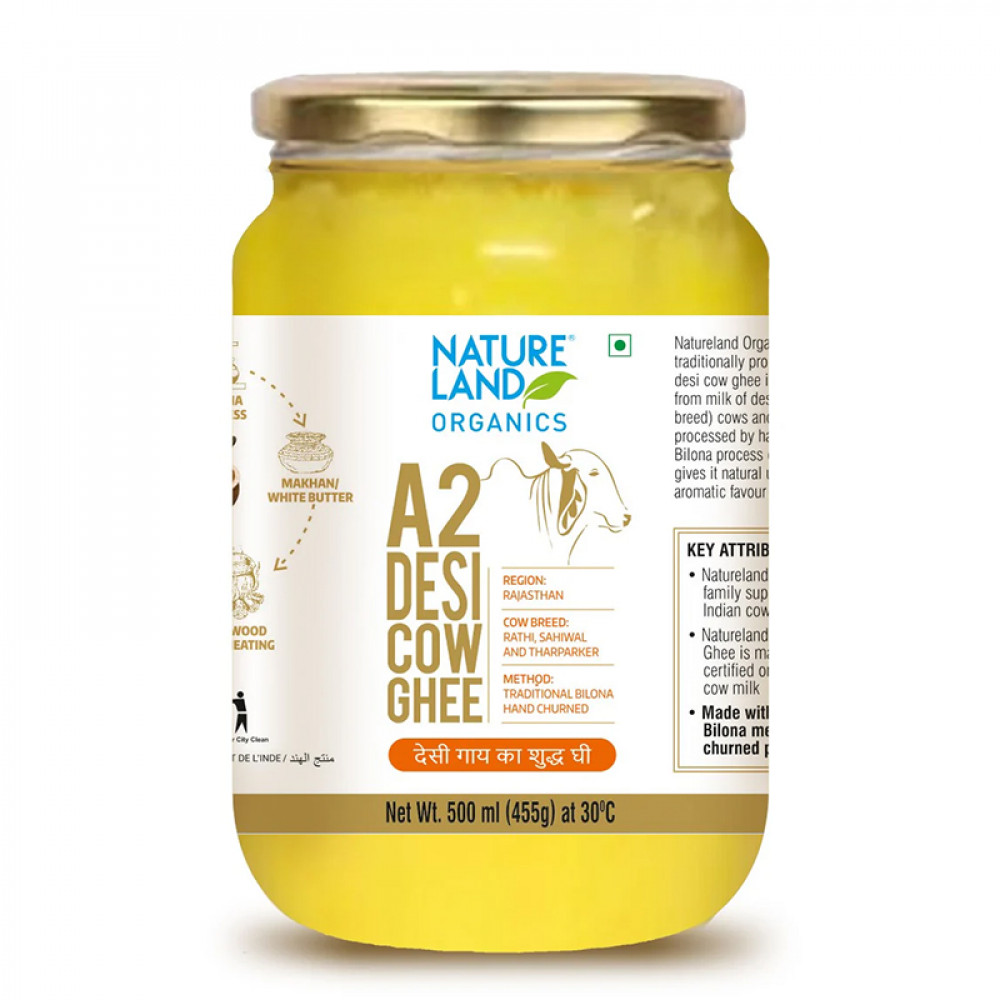
Natureland A2 Cow Ghee - 500 Ml
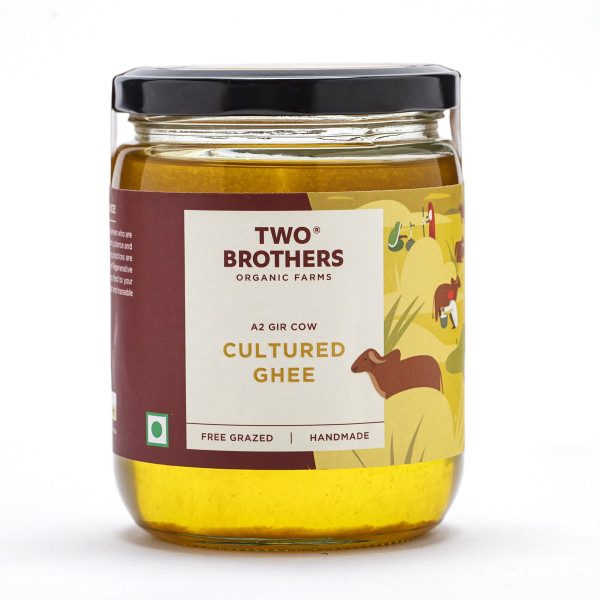
Two Brothers A2 Cultured Ghee, Desi Gir Cow 500 Ml
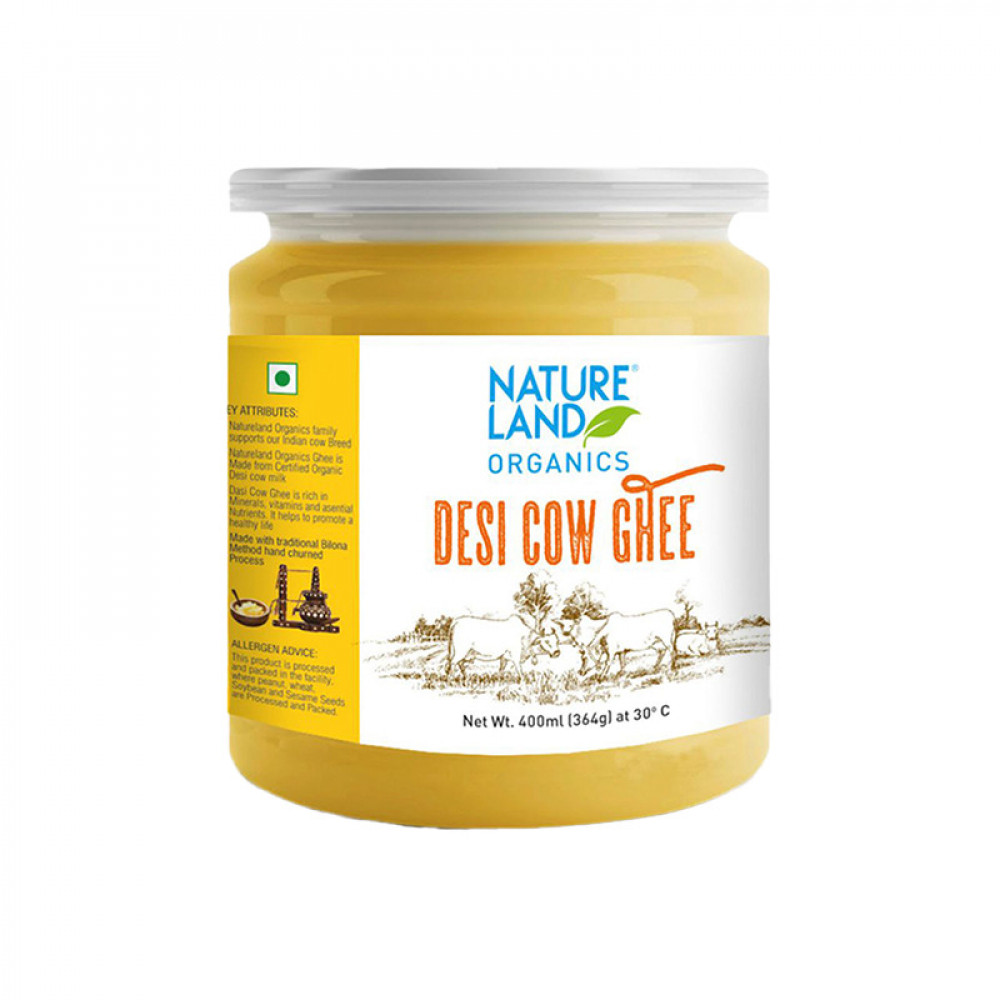
Natureland Premium Cow Ghee - 400 Ml
Organic Cow Ghee vs. Vanaspati ghee - what's the difference?
'Ghee' comes in mainly two variants - Organic Cow Ghee and Vanaspati Ghee. The latter, though a tad cheaper, is made from vegetable oil and closely resembles cow ghee. On the other hand, Pure Ghee or Cow Ghee is made exclusively from cow milk. It is made with the traditional churning method and contains animal fat as opposed to the synthetic fat used in vanaspati ghee.
Benefits of consuming pure, organic desi ghee:
Helps to keep the body warm
Ghee is known to keep you warm during nail-biting colds. Based on this premise, winter sweets like gajar ka halva, pinni, and pinjiri are made with natural cow ghee for the best taste and health benefits.
Eases nasal congestion
Nasal congestion makes breathing difficult, not to mention the exhaustion and headache that follows. A common remedy for nasal congestion includes pouring a few drops of lukewarm ghee in the nostrils on an empty stomach first thing in the morning. This helps soothe the infection and unclogs the entire respiratory system from the throat on wards.
Eases nasal congestion
As mentioned earlier, ghee is a great source of energy. It contains many of the essential fatty acids required by the body. No wonder pregnant women are recommended to have ghee-loaded laddoos. Besides this, many other food preparations contain ghee for its energy-boosting properties.
Contains good fats
We all have heard it one time or another- fats are bad for your body. However, this is far from the truth. To maintain a healthy life, we need to have the recommended amount of carbohydrates, fats, and proteins. Removing one of these nutrients can be detrimental to our health. What we need to do, instead, is to avoid junk food and make better lifestyle changes. Ghee contains the good fats in the right quantities, perfect for adding to your food while avoiding fried and sugar-laden food items.
Keeps intestines healthy
Ghee contains Butyric acid, helping to maintain the walls of the intestines. Butyric acid is also a source of energy used by cells of the colon, the longest part of the large intestine.
Other Benefits of Pure Cow Ghee
Prevents constipation
Experts suggest having ghee with milk to ease your bowel movements. A few teaspoons of ghee in a cup of hot milk is recommended as a remedy for constipation.
Great for cardiac patients
Though ghee is known to raise cholesterol levels, it is a great source of energy as the fats present in ghee have energy-boosting properties as against long-chain fatty acids that are guilty of adding weight to the body. As far as cholesterol levels are concerned, cow ghee helps reduce harmful blood cholesterol levels and boosts beneficial cholesterol levels.
Helps in digestion
Earlier, experts recommended having a spoonful of ghee before every meal. This reduced the chances of ulcers and various forms of cancer. Ghee is also known to keep the gut healthy.
Protects arteries
Vitamin K2 in cow ghee helps to reduce calcium deposits in the arteries.
Helps in bone development and density
The richest source of fat-soluble vitamins is in cow ghee. It helps to strengthen the bones and enhances bone strength. Cow ghee in limited quantities helps the body in increasing bone density and muscle mass. Also, Vitamin K present in ghee helps to prevent atherosclerosis and prevents tooth decay.
Improves immunity
Butyric acid, a crucial nutrient present in ghee, helps to produce T-cells that fight various diseases in our body.
Heals wounds
Jatyadi Gritha, a herbal remedy, is extensively used to treat wounds. It can be made easily by combining two teaspoons of Neem with a teaspoon of Turmeric (Haldi) powder and half a cup of cow ghee. This paste helps expedite the healing of wounds. Experts also advise applying cow ghee over bleeding wounds for an effective recovery.
Helps pregnant women
The various nutrients present in cow ghee makes it ideal for the healthy growth and development of the fetus. Nursing mothers can take cow ghee to prevent the newborn from getting vertebral/bone disorders or malnutrition issues.
A few last thoughts...
We hope this is enough to bust the misconception of ghee being unhealthy. Yes, you need to buy pure organic ghee to take advantage of all its benefits. You should make the switch to pure organic cow ghee for a healthier lifestyle.
